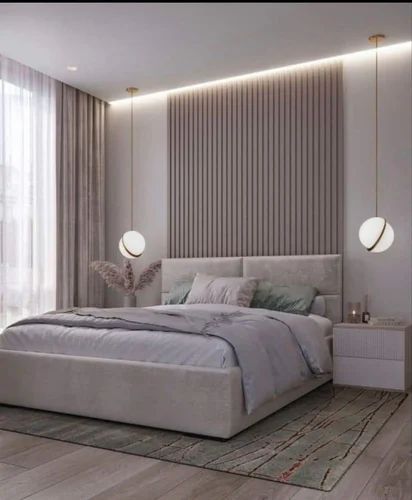A well-designed bedroom serves as a sanctuary for rest and relaxation, providing a comfortable retreat from the chaos of daily life. To create a serene space that promotes tranquility, several key elements must be considered.
The first step in designing a calming bedroom is to choose a soothing color scheme. Soft, neutral tones like light blues, greens, and earthy hues can help create a sense of peace and relaxation. Avoid using bright or bold colors that may be too stimulating for a restful environment.
Another essential aspect of bedroom design is selecting comfortable and inviting furniture. A cozy bed with quality linens, plush pillows, and a supportive mattress is crucial for a good night’s sleep. Additionally, incorporating seating areas, such as a comfortable chair or reading nook, can enhance the functionality and comfort of the space.
Good lighting is also key to creating a relaxing atmosphere in the bedroom. Consider using soft, warm lighting sources like bedside lamps, wall sconces, or dimmable overhead lights to provide a gentle ambiance. Natural light is beneficial during the day, so try to maximize daylight exposure with sheer curtains or blinds.
Clutter can disrupt the peacefulness of a bedroom, so it’s important to keep the space tidy and organized. Utilize storage solutions like dressers, closets, and under-bed storage to keep belongings out of sight and maintain a clean, uncluttered environment.
Lastly, incorporating personal touches and decor elements that bring you joy can help create a sense of comfort and familiarity in your bedroom. Display meaningful artwork, photographs, or items that evoke positive emotions to make the space uniquely yours.
In conclusion, the key to designing a bedroom that promotes relaxation is to prioritize comfort, simplicity, and serenity. By carefully selecting colors, furniture, lighting, and decor that contribute to a peaceful atmosphere, you can create a tranquil sanctuary where you can unwind and rejuvenate after a long day.

Leave a Reply